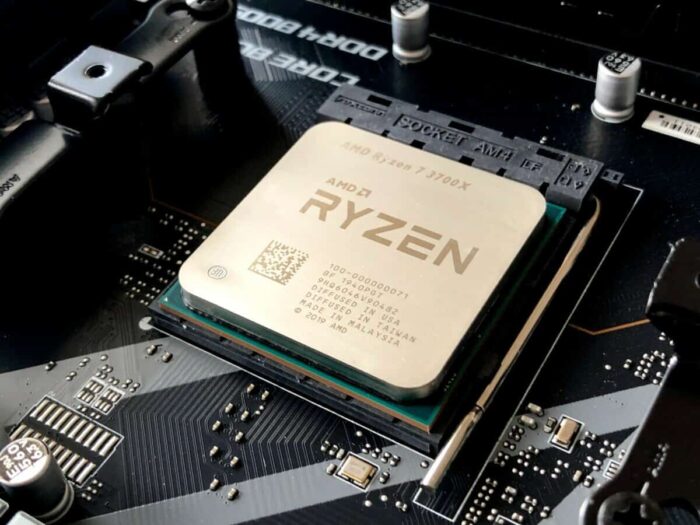
Speed has always been the best measure of a laptop’s performance. Like any computer, your laptop relies on its RAM and CPU when it comes to the way it performs its necessary functions. And both of these components are just as important as any other part that your laptop has. But which between the RAM and the CPU makes the laptop faster?
The CPU is responsible for improving your laptop’s speed because this is the part that is responsible for allowing the laptop to process information and data. Of course, the better your CPU is, the faster your laptop should be. The RAM can also contribute to the laptop’s speed but not as much as the CPU does.
There is a reason why the CPU is called the brain of the computer as it is responsible for a lot of the different things that make a computer a computer. That said, when it comes to your laptop, it can never be overstated how important it is for it to have a powerful CPU if you want it to be able to perform fast. Then again, it still needs some RAM space for it to be able to actually be as fast as it can.
Which between the RAM or the CPU makes a laptop faster?
The answer to this question is that the CPU is what makes the laptop faster. Reading on with this article will make you understand what the RAM and the CPU do.
Basically, that’s because the CPU is essentially the one that processes all of the data and information that your computer needs to process from the storage drive. So, when the CPU is more powerful, that means that it can handle and process more data at speeds that are faster so that the laptop can work more efficiently.
Think of it this way. Your RAM is the workplace or the workbench that you are working on. Meanwhile, you yourself are the CPU.
So, if you have a larger workspace, then you can work more efficiently because you can use more tools to your advantage and perform plenty of different tasks at the same time.
However, there is only so much that you can do if you have your own limits. If you are not skilled enough at handling the tools at your disposal no matter how many tools there are on your desk, you won’t be able to function as efficiently as someone who has a smaller desk but is more capable of handling his tools in terms of his skill.
Going back to your laptop, even if you do have a large enough RAM memory, that doesn’t mean that your computer will improve its speed as you still need a laptop CPU that is capable of handling complex information and data faster. This won’t make a difference when you are only doing simple daily tasks such as word processing or internet surfing but you will see the difference when you are now performing demanding tasks like graphics and video editing and gaming.
In that case, having a laptop with a better CPU can make the laptop work faster but it can still be limited by the RAM that your computer has. No matter how skilled a person is, he won’t be able to make use of his skills if he has a small workspace. This is why it is essential that your CPU also has a larger “workspace” that perfectly complements its speed.
Then again, the problem with laptops is that the CPU is almost always impossible to swap out because laptop processors come soldered onto the motherboard. As such, you won’t be able to swap out a laptop CPU with a new one.
On the other hand, most laptop motherboards come with an extra RAM slot that will allow you to expand the computer’s memory. So, if you notice that your laptop is rather slow, expanding its RAM can actually make it faster because you are basically giving more space for its processor to work with.
Meanwhile, if you are still shopping for a good laptop, then always prioritize its processor first before looking at its RAM. Of course, you should still make sure that the laptop has enough RAM to complement its processor or, at the very least, must come with the option to expand its memory.
What does the RAM do?
In relation to your laptop, the random access memory or RAM is one of the most important components alongside the CPU and the storage drive. That’s because the RAM or simply the memory is the laptop’s workbench when it comes to how the computer functions on a regular basis. But what exactly does the RAM do?
What the RAM does is that it is responsible for storing temporary data that your computer uses whenever you open a program or app. The RAM also allows the computer to store data whenever it is running background processes that are important for the operating system to do its job effectively.
So, in an analogy, the RAM is essentially the workbench for the tools that you take out of your tool shed, which is the counterpart of the storage drive in this discussion. The larger your workbench is, the better you will be at handling different tools because you have more space that you can use for work.
In relation to what the RAM does for a computer, what happens here is that the RAM is essentially a storage unit that houses temporary files that the CPU or processor needs to run the programs you opened. The more programs that are open or the higher the requirements of the programs are, the slower your computer will be due to how your RAM cannot handle all of them at once.
However, when you are opening only a few programs that aren’t too demanding in terms of memory requirements, you won’t be able to feel how fast your computer is regardless of how much RAM the laptop has. This is because the RAM is merely the computer’s “workbench” and is not entirely responsible for making it faster. You will only feel the difference when you have plenty of programs opened or whenever you are playing games that require plenty of memory.
Still, the quality of the RAM you have also plays a role in the speed of the laptop. Memory speed is essentially the amount of time that the RAM needs to receive a request from the CPU. So, the higher the memory speed of your RAM is, the faster it is at processing the request from the CPU.
In that regard, the aspect of the RAM that makes it fast is not its size. Instead, what matters more in terms of the computer’s speed is the RAM’s memory speed. Still, the RAM’s size does play a role in the laptop’s speed especially when you tend to max out the computer’s memory on a regular basis.
What does the CPU do?
Meanwhile, the brain of the computer is essentially the central processing unit or the CPU. It is also often called the processor. This is a piece of hardware that will allow your computer to interact with all of the programs installed in the storage drive.
So, whenever you open a program on your computer, what happens is that the CPU will process all of the data that the program needs to function as it communicates with the storage drive. It will also store the data in the computer’s memory and will constantly send requests to the RAM whenever it is using the temporary data stored in the computer’s memory.
In the most basic sense, the processor is the “thinking” part of the laptop as it is the one that delivers information throughout the entire computer. As such, it processes the information that your laptop needs to function regularly. That’s why it matters how powerful your processor is because the CPU’s processing speed can dictate how fast or how slow the laptop will be when it comes to interpreting information and data.
Processor cores and clock speeds are what determine how much information at a time that the processor can handle and how quickly it can process the information. So, when you are looking at your laptop’s processor, it is important that you look at how many cores it has and how fast these cores are capable of processing data. The speed at which the cores and the clock speed work together is what ultimately determines the CPU’s processing speed.
